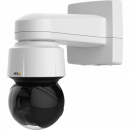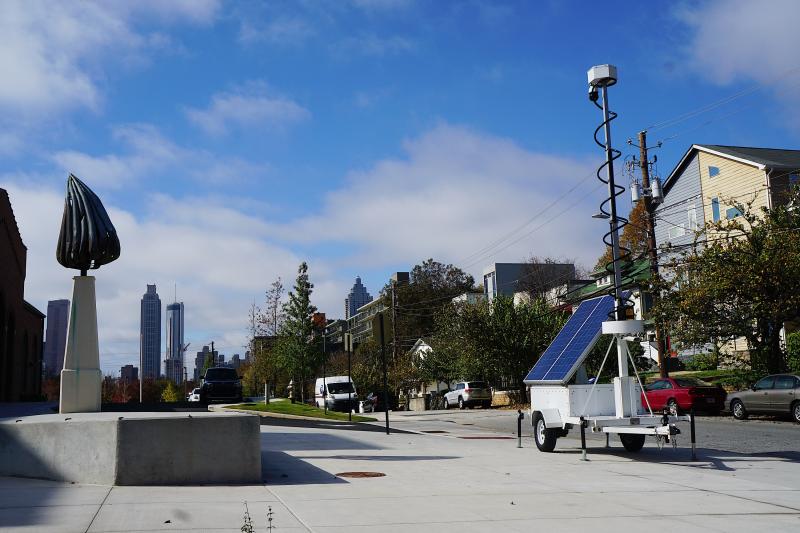
Atlanta PD deploys mobile surveillance trailers for crime deterrence.
Axis Communications and Compass Security Solutions manufacture a set of solar-powered surveillance trailers for the Atlanta Police Department to deter crime and improve situational awareness.

Mission
The Atlanta Police Department and its strategic public safety partner the Atlanta Police Foundation continuously seek ways to deter crime by increasing their coverage of areas and events. The city desired a mobile solution that could be deployed for additional and short-term coverage of large gatherings. Once pandemic-related lockdowns and subsequent protests began, the need for a force multiplier was even more clear to police. The agencies sought a technology solution that could capitalize on the city’s Video Integration Center where they collect footage from thousands of public and private surveillance cameras.
Solution
The Atlanta Police Foundation commissioned Compass Security Solutions to construct a set of four mobile surveillance trailers that could be deployed quickly from site to site. Each trailer was equipped with a network pan-tilt-zoom camera from Axis Communications atop a 21-foot mast, the AutoVu™ SharpV, an automatic license plate reader from Genetec™, and an outdoor speaker from Axis for safety announcements— all networked and driven by a solar-powered platform for autonomous operation for up to five days without sunlight.
Result
The mobile surveillance trailers have positively enhanced Atlanta’s safety by providing crime deterrence to areas where officers can’t always be, and by offering situational awareness for officers when they respond to incidents at the camera’s location. The surveillance trailers have served in an investigational role, as well. In one case they captured video footage of a shooting that resulted in an arrest being made. The Atlanta Police Foundation hopes to acquire more surveillance trailers, because of their value, ease of use and sustainability.
The trailers give us the ability to deploy surveillance equipment quickly to areas that need coverage and provide us with the forensic quality video we’ve come to expect from Axis and Genetec. It’s changed the way we plan for large events and critical incidents.
The emergence of mobile surveillance options
Half a million people call the city of Atlanta home, and approximately six million people live in the metropolitan area. Atlanta draws residents because of its bountiful base of employers and lively community life encompassing culture, food, festivals, and sports. The Atlanta metro area has consistently ranked among the nation’s top five population-growth areas in recent years.
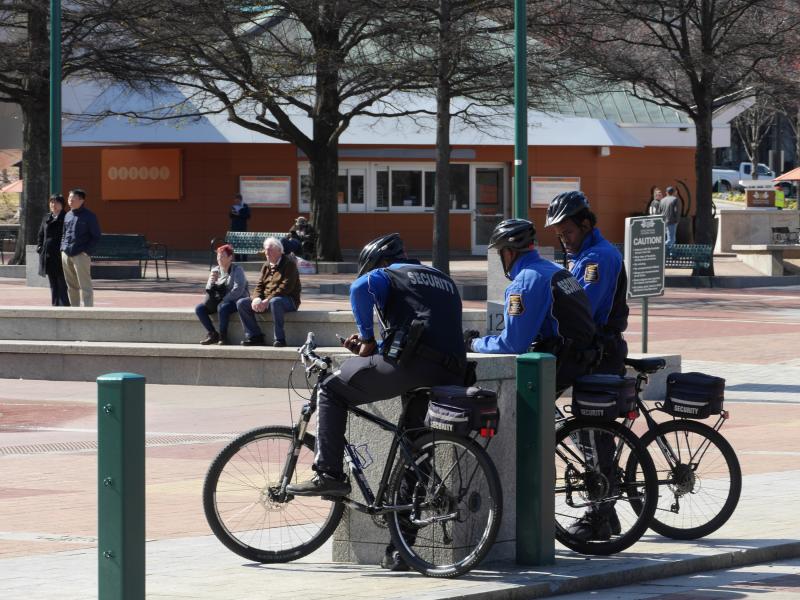
The nearly 2,000-strong unit of sworn officers of the Atlanta Police Department (APD) sets a safe environment for the many events that occur throughout the city. However, public safety concerns that emerged because of COVID-19 and public protests had them considering mobile surveillance options. The Atlanta Police Foundation (APF), a not-for-profit organization that acts as a strategic partner to APD, sought a technology solution that could help deter crime and provide situational awareness of frequently changing hot spots due to these outbreaks.
“When we first got into the COVID crisis, the very first thing we looked at was how can we protect some of the businesses that exist around the city of Atlanta that might be shutting down. We knew that we didn’t have surveillance in some of the parking lots, shopping malls, and the centers that we needed to have coverage in, so we deployed the cameras there for that use,” says Marshall Freeman, chief operating officer of the APF.
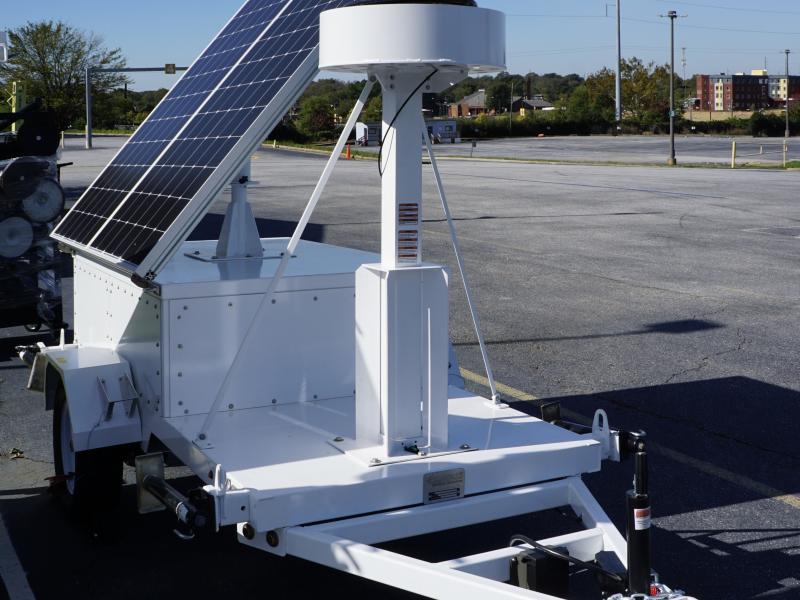
The Foundation commissioned Compass Security Solutions, an Axis partner, to build four self-contained, wireless, mobile surveillance trailers for use by the APD. Each 5-foot wide by 13-foot long trailer features a belt-driven, aluminum, 21-foot telescoping mast. Affixed to each of the masts is an Axis pan-tilt-zoom (PTZ) camera and an AutoVu™ SharpV automatic license plate reader (ALPR) device from Genetec™, a video management software provider and Axis application development partner.
Each trailer also holds an Axis network horn speaker, a unit designed for clear, long-range, outdoor communication. The APD uses the speaker for issuing “talk downs” and other announcements.
The Genetec SharpV™ solution was selected based on its superior read accuracy, advanced edge-based analytics and capability to read plates at high speeds (135 mph/217 kmh), or even at night. With processing on-board, only plate read data needs to be transferred over the network, which decreases data load on the network and server as all the image processing and analysis is completed in the unit.
Design benefits city during unrest
“At first, the police department saw these trailers as a really good tool to give visibility to what we call the Video Integration Center, of some of the key areas in which we didn’t have adequate coverage from permanent cameras that were installed. The trailers would go up whenever there was a large event that was happening in town like the Peachtree Road Race. Over time they have been viewed through the same lens but used in a slightly different way. The goal is still to give us coverage where we don’t have it. But this year has brought about many different challenges related to COVID-19 and the protests that are going on,” Freeman says.
To enable quick relocation and setup wherever they are needed, the surveillance trailers feature solar panels and batteries that provide up to five days of continuous operation of the cameras and speaker, with no connection to power infrastructure or sunlight. Power collection is done through the solar panels, power storage through the batteries, and power management through the electrical equipment. The security equipment is networked in through a switch. Data communication is accomplished via an LTE router, making the trailers completely wireless.
“The trailer, in a nutshell, is a communication-empowered platform, and that power platform is designed around what the load is going to be,” describes Thomas Frey, president of Compass Security Solutions, who manufactured the trailers. Compass used its 700-watt series, model CMS-700 trailers, because they provide the required power based upon the load of the camera systems and speaker.
Frey chose AXIS Q-Series PTZs with outdoor enclosures because of their ability to focus quickly. Perfect, instantaneous focus is a challenge for PTZ cameras, especially in low light. These cameras use advanced laser technology to always give flawless focus — even in the dark. It is an ideal camera for city surveillance, critical infrastructure and other applications where instant focus on moving objects and fast-changing scenes is needed.
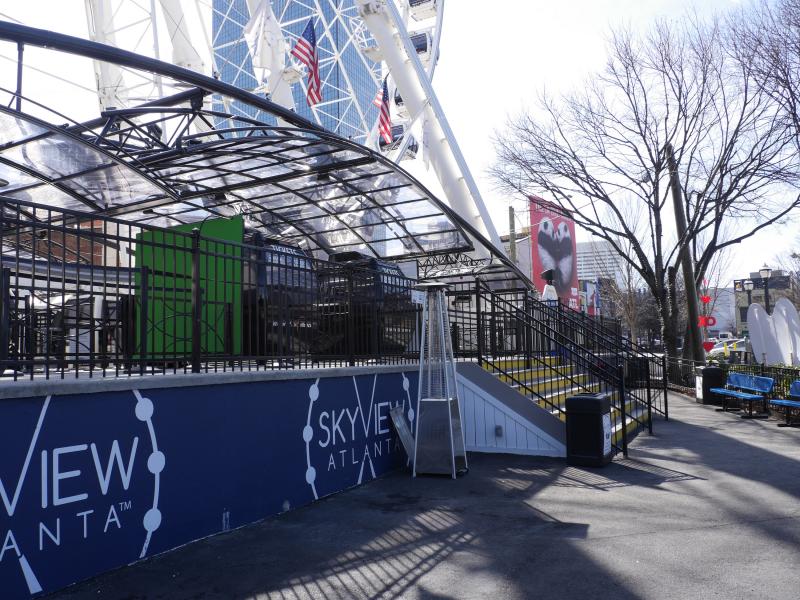
An extra set of “eyes” for deterrence and evidence
The APD began using the cameras around the city in places where it needed extra eyes, such as stretches of road where “street racing” sometimes occurs. “We’ve had this issue in the city now that has come up recently with street racing. It has become a big nightmare for us on weekends, and so we’re able to move the solutions around in a way where we give the intel to the Video Integration Center and it just solves for what our needs are,” Freeman says.
In fact, there was an instance when a shooting occurred during a street racing episode and video footage from one of the trailers provided the evidence for police to make an arrest. The surveillance trailers were not hidden but used openly as a deterrent. “I know a lot of people … when they look at solutions like this, they’re looking at it more like covert operations and they want it hidden so they can solve a crime inconspicuously. We’re polar opposite for the way that we deploy these. We want them visible; we want them in your face. We want you to know and see them and understand that they’re there,” Freeman says.
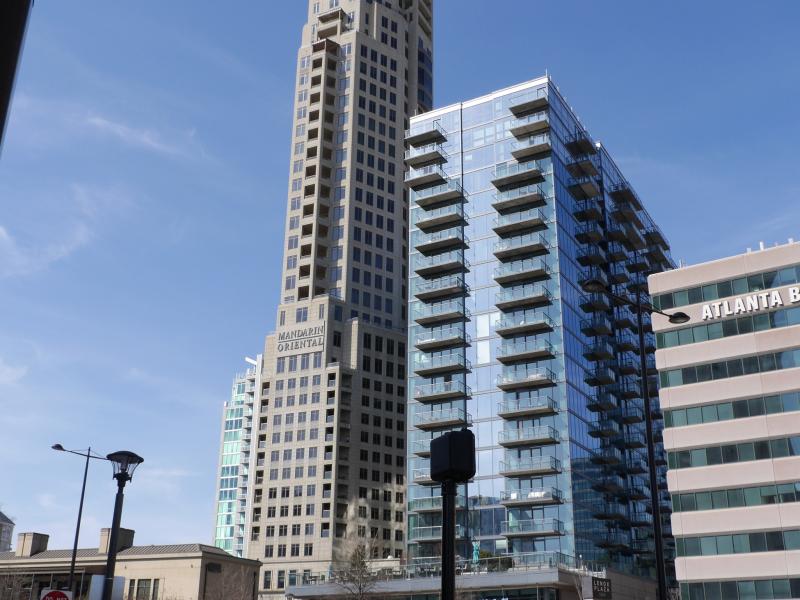
The trailers are light and nimble, making them easy to tow from place to place as they’re needed. What’s more, they can be jumped over curbs and set on sidewalks or moved up and down stairs. Their suspension system makes them ideal for moving around the city and provides stability so that when the camera systems are positioned to view a certain scene, they don’t later shift away from that scene as it was originally set up. In addition, everything that needs to be turned on/off or checked out is all at ground level, so if officers ever need to troubleshoot anything it’s very secure for them to work.
Video footage stored locally or streamed centrally
From the business closures that occurred in the effort to curtail the spread of COVID-19, to the civil protests that began gaining momentum, the APD finds more and more uses for its mobile surveillance trailers to aid its law enforcement work. “We went right from COVID into the protests that were happening all across the country. Once we received the intelligence on where these protests were going to happen, we then strategically deployed the cameras to make sure that we had adequate coverage and visibility there, so we provide it back to the Video Integration Center,” Freeman relates.
Atlanta’s Loudermilk Video Integration Center (VIC) is a cutting-edge facility that serves as the hub for the city’s Operation Shield program. It integrates video feeds from thousands of publicly and privately owned surveillance cameras to give the police department greater coverage of city streets.
Video feeds from cameras on the surveillance trailers can be transmitted to the VIC and viewed live by operators. Footage also can be stored locally on the cameras. If an occurrence requires action, the system generates an event within the Genetec™ Security Center — a unified security platform in the VIC — to let someone know right away that a response is required.
“It is our goal to be able to watch the trailer cameras live at all times whenever we want. However, we do realize that the consumption of data becomes a bit challenging. Thankfully, some of our technology partnerships that we have with the communications companies have allowed us to be able to have SIM cards that we could provision to stream these back to the VIC,” Freeman describes.
As a law enforcement professional, Freeman and his colleagues appreciate that their systems integrator and equipment vendor partners shoulder the load of expertise about the various technologies used for this project. He points to a high level of service as being instrumental in the successful rollout of the surveillance trailers.
“What I have always loved and appreciated about the working relationship with Compass is the level of service that they provide, the attention to the customer. I’m fully aware that the city of Atlanta and the Atlanta Police Foundation is not their only customer. However, they do a really good job of making us feel like we are,” Freeman describes. “I think that’s why we’ve been very successful in this partnership with them on these camera trailers.”
“What I love about Axis is they’re the technology experts, we’re not so we usually go with hat-in-hand saying, ‘Here is our problem.’ We usually start with the problem first, and then Axis is really good about convening a group of folks that all understand it way more intimately than us. They’re able to bring them all together as a resource and as a tool for us, and really offer solutions that help us to solve our problems.”
“That is why we’re committed to our partnership and I’ll continue to work with Axis because they have assisted us in solving for all of these problems that have come up for our city,” he says.
Police departments across the country are short-staffed and Freeman notes that Atlanta is no stranger to that condition. “When you’re down a lot of manpower, then what you’re looking for is how can we mobilize tools that are going to give us some of the same things that we would have if we had an officer physically standing there, and obviously the cameras have provided that for us,” he says.
Products & solutions

Smart cities

AXIS Q3617-VE Network Camera
Outstanding image quality with easy installation and remote adjustment
Learn more
AXIS Q1941-E PT Mount Thermal Network Camera
Wide thermal coverage with pan/tilt flexibility
Learn more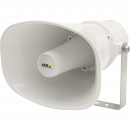
AXIS C3003-E Network Horn Speaker
This product has been discontinued and replaced. Find the replacement on the product support page.
